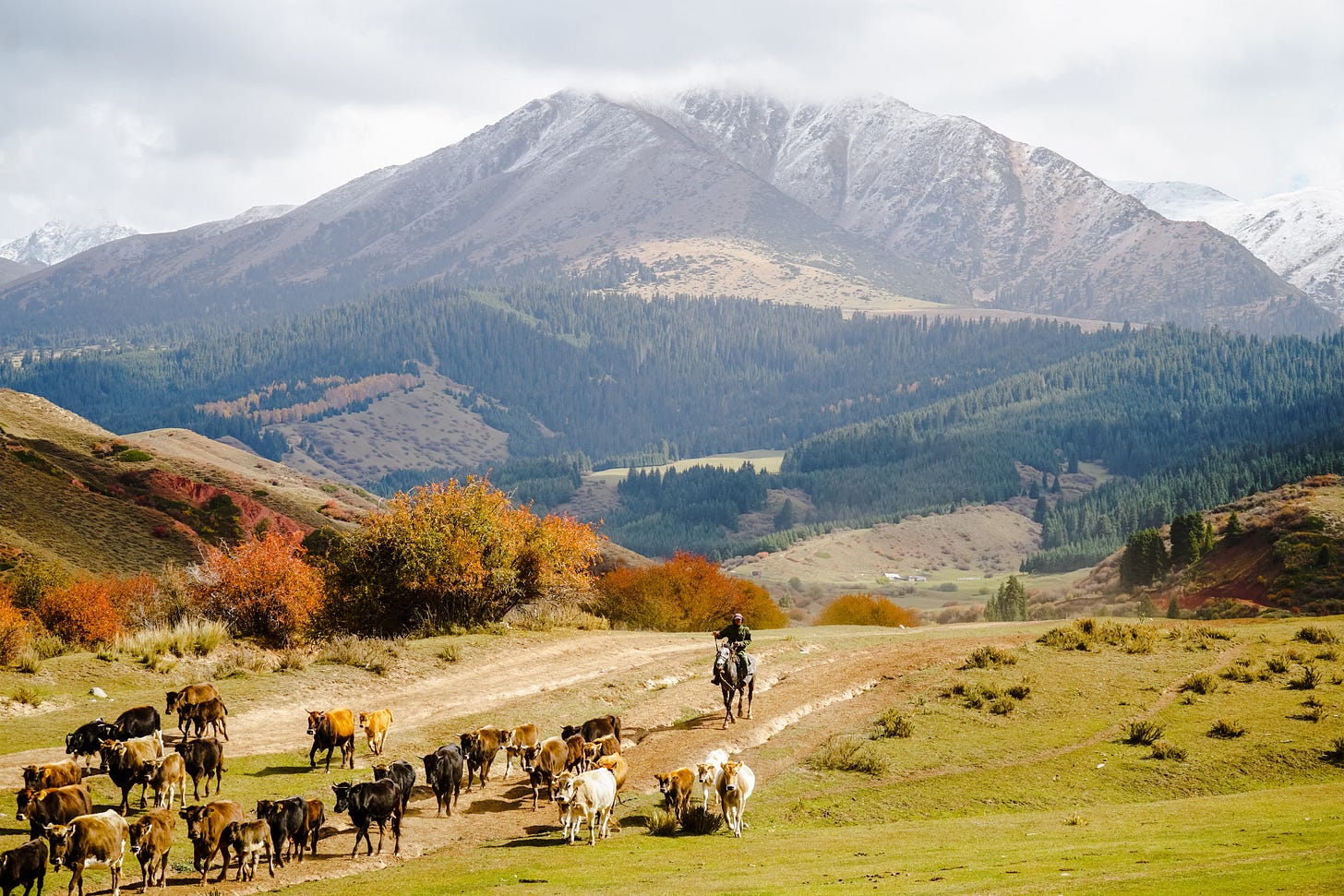Colorado Pays Ranchers To Let Livestock Die—What Is The Real Goal?
When Saving Livestock Is Punished: Colorado’s Wolf Compensation Law and the Ethics of Predator Reintroduction
Colorado’s wolf reintroduction program was supposed to balance the needs of wildlife and ranchers. But a recent compensation dispute has exposed a fundamental—and disturbing—flaw: Under current law, ranchers may be financially better off letting their livestock die than saving them. Is this just bureaucratic oversight, or is it a calculated move to shrink Colorado’s cattle industry?
Questions are emerging around whether this compensation structure might inadvertently—or intentionally—encourage livestock death over treatment, and potentially reduce livestock grazing in Colorado.
A Rancher’s Dilemma: The $435 That Sparked a Policy Firestorm
When a wolf attacks livestock, ranchers face an agonizing choice. For Bruce Gittleson, a North Park rancher, the cost wasn’t just the loss of an animal—it was the mounting vet bills, the extra hours of care, and the emotional toll of nursing a wounded animal back to health. Gittleson did what most would hope for: he chose to save his animal https://www.summitdaily.com/news/what-kind-of-vet-care-should-ranchers-be-compensated-for-after-wolf-livestock-conflict/?utm_source=chatgpt.com.
But when he filed a $2,542 claim with Colorado Parks and Wildlife (CPW), including a modest $435 for veterinary care and labor, the commission hesitated. There were no rules in place to compensate for anything but outright death. The $435 was tabled. Gittleson’s story became a lightning rod—exposing a system that rewards loss and discourages humane intervention https://www.9news.com/article/news/local/colorado-wolves/colorado-wolves-damage-claims-ranchers-expanding-compensation/73-4ab02bca-75b6-4e93-8e23-0ea589b87e5d.
Colorado CPW Rule Book https://www.sos.state.co.us/CCR/Upload/AGORequest/Redline2024-00197.pdf
Encouraging Death Over Care
Here’s the cold, bureaucratic reality:
If a wolf kills your cow, you’re eligible for a check https://www.rfdtv.com/colorado-ranchers-compensated-for-wolf-related-livestock-losses-but-may-not-last-due-to-a-budget-crisis. If you save the animal but rack up vet bills and lost productivity, you could be left with nothing. Ranchers across the state are quietly asking: “Are we being told it’s better to let our livestock die?”
This perverse incentive—one that effectively encourages ranchers to allow animals to die for compensation—stands in stark contrast to both animal welfare standards and the state’s own promises to “fairly compensate” rural producers for losses. It’s an ethical and economic minefield.
The Policy Gap: How Did We Get Here?
Colorado’s wolf compensation program, a byproduct of Proposition 114, was meant to be a safety net for ranchers caught in the crosshairs of rewilding policy. Yet, by refusing to clearly define and compensate for indirect losses—vet care, labor, future breeding value—the state has left ranchers in limbo. Commissioners say they want to avoid fraud and maintain fiscal responsibility, but at what cost?
The CPW Commission, recognizing the implications of Gittleson’s claim, has now launched a review to set new guidelines. But until then, the message is clear: death equals dollars; saving lives equals sacrifice.
Is This By Design?
Beneath the surface, a deeper—and far more controversial—question is emerging. Could Colorado’s wolf program be intentionally designed to reduce livestock grazing in the state?
Some ranchers and rural advocates point to a pattern:
Delays and confusion over compensation rules
Minimal support for non-lethal deterrence
Mounting regulatory hurdles for grazing permits
Urban-backed ballot initiatives pushing predator expansion, often over rural objections
“It’s almost like they want to make it impossible to raise cattle here,” said one Western Slope rancher, who asked not to be named for fear of retaliation. “If we lose a calf, we’re on our own. If we do the right thing and save it, we’re still on our own—and out the cost.”
The Broader Impact: Trust, Transparency, and the Future of Ranching
At stake is not just money, but trust. Many ranchers now view Colorado’s reintroduction program as an urban-driven policy that prioritizes ideology over real-world consequences. They see a system that puts the burden of predator recovery on their backs, while city-dwellers celebrate the return of wolves from afar.
Key questions remain:
Why hasn’t the state moved faster to close loopholes that punish animal welfare?
Is there a genuine effort to balance the needs of wildlife and livestock producers, or is the compensation process designed to quietly push ranchers out?
Who benefits when small producers go under—environmental lobbies, large landowners, or government agencies seeking less “conflict” on public lands?
Conclusion: A Call for Reform—Or Reckoning?
Colorado’s experiment with wolf reintroduction is at a crossroads. If policymakers are sincere about coexistence, they must urgently reform the compensation program to encourage humane animal care, not punish it. Anything less will only fuel the suspicion that the state’s true goal is to see fewer cows—and fewer ranchers—on the land.
Until then, ranchers will keep facing the same impossible question: Is it better to let your animals die?
Additional Resources
A North Park rancher's $435 vet-care claim spurred Colorado Parks and Wildlife to consider expanding compensation rules to include indirect costs like labor or veterinary services summitdaily.com
The CPW rulebook already allows reimbursement for “veterinarian expenses and medical supplies,” but lacks clarity on how far indirect claims (e.g. lost productivity) go sos.state.co.us.
Currently, Colorado ranchers can receive up to $15,000 per animal, with secondary losses—such as stress, reduced weight, or fertility—also eligible for compensation cpw.state.co.us
CPW has already paid out over $343,000 to just two ranchers for confirmed wolf-related losses, nearly exhausting the annual fund 9news.com




